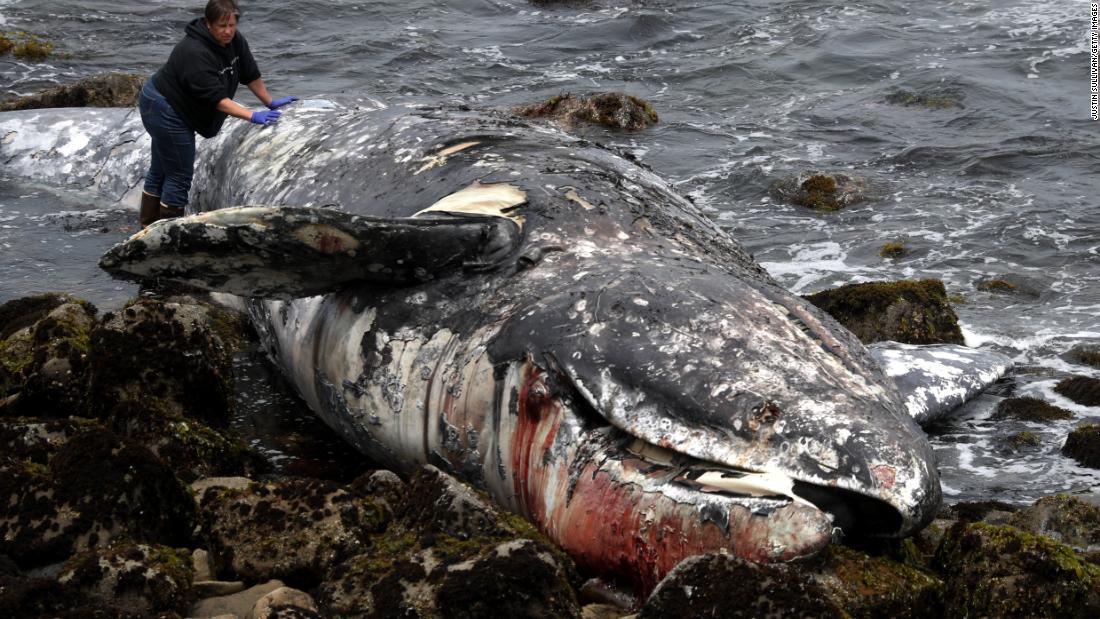
As of Thursday night, 58 gray whales have landed ashore from California to Alaska, compared to 45 for all of last year, the National Oceanic and Atmospheric Administration said. Some were underweight, leading scientists to think they did not have enough food.
"Why these whales are malnourished is the mystery we are trying to unravel," NOAA spokesman Michael Milstein said. "Something is going on."
The last time researchers saw such high numbers was in 2000, when 131 deaths were documented.
Gray whales spend half the year in Mexico and their summers in the Arctic, where they do most of their eating for the year. Milstein said something out of the ordinary might have happened last year to prevent them from eating enough to sustain them.
"The die was cast last summer," he said.
NOAA puts the overall West Coast gray whale population at 27,000, the highest recorded in recent times. Indeed, researchers wonder if they're running into trouble because there's more competition for food.
The whales can grow as large as 90,000 pounds. They were taken off the Endangered Species List in 1994.
In Washington, 18 of the giants have died this year, said researcher John Calambokidis of Cascadia Research. He recalled just two years like this one. In 1999, the state had 27 deaths; in 2000, it had 23.
He said he is also concerned with so many deaths observed this early. "The majority of the dead animals we've seen are extremely malnourished and emaciated. We have no direct evidence but it's particularly concerning with the changes in the Arctic ecosystem."
But he said it's still too early for researchers to assign cause.
Ten have beached in the San Francisco Bay Area. The rate is "cause for serious concern," said Dr. Padraig Duignan of the Marine Mammal Center. At least four of those died from malnutrition.
Officials at the center say biologists have observed gray whales "in poor body condition" this year, possibly "due to anomalous oceanic conditions" which have contributed to "shifting food sources."
No comments:
Post a Comment